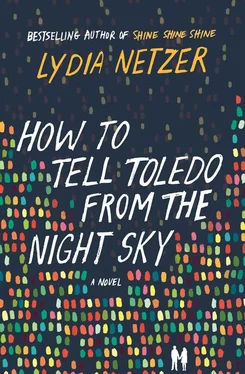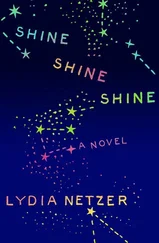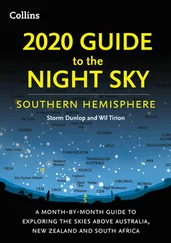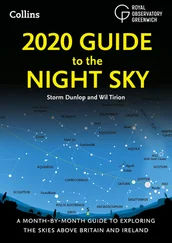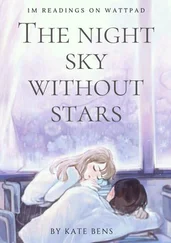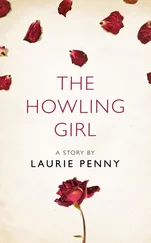“The tortoise. Patience. A long plan,” she said.
“Nine months long,” muttered Sally.
“I think,” said Bernice, “that you are going to have a son.”
“You said that already,” said Sally.
Bernice frowned. She saw a very distinct shape in the tea, one she was not familiar with.
“Look at this,” she told Sally.
“What?” Sally demanded. She sat upright in her chair.
“Look here. Looks like…”
“Looks like a barbell,” said Sally. “There is a barbell right there. What does that mean? I’ve never seen that symbol before.”
“I don’t know,” said Bernice. “Have to get the book out.”
She crossed to the bookshelf and put her finger down the spines of several books, then pulled out a slim one and opened it up.
Sally covered the teacup with her hand, coughed.
Bernice read the words next to the symbol that matched the one in the teacup. The book said, “Broken soul. Danger. Death.”
Sally read her face, snatched the book away, and glared at the entry for barbell.
“Are you serious? What a shitty, shitty thing to say.”
“Wait,” Bernice told her, picking up the mug again. “Is that a rainbow, though? Maybe it looks like a rainbow.”
“It’s a fucking barbell,” said Sally. “Broken soul. What the fuck does that even mean.”
Bernice shrugged and sat down on the coffee table again. She felt sad and sorry. She felt that Sally should not have to survive this pregnancy alone, not have to survive being married to Dean alone. What if the baby did have a broken soul? What if Sally got sick every day, had to be helped to the bathroom, helped back to bed?
“Maybe we can save him, though, don’t worry,” said Bernice.
“What breaks a soul?” Sally said.
“Love,” said Bernice. “Gambling?”
“Love can literally kill him? Like with literal death? The book says death.”
“Maybe that’s metaphor,” said Bernice softly. “They’re only tea leaves.”
Sally lay back in her chair, and ground her teeth together. The tears came out the corner of her eyes and dropped into her hair, her ears.
“What can I do,” Sally said, enunciating each word very clearly. “What steps must I take to fix this? How can I help this boy?”
She sat up and glared at Bernice, as if her body was on fire, and she couldn’t stand it. Bernice looked in Sally’s face and saw a raw edge there that she had not seen before. And her heart was pounding, so full of love. It was just a clump of tea in a porcelain mug. But look at the spirit. Look at the flesh.
“How can we help?” Bernice corrected her. “I’ll help you. I will.”
“Here we are. Frankie’s Diner. Diners,” said George, “are the best places to have arguments.”
“No argument,” said Irene. “I’ve been waiting to go to Frankie’s since I crossed the border into Ohio.”
Frankie’s was attached to a nightclub, and George and Irene had waded through a band unloading instruments and amplifiers into the club side on the sidewalk. George took Irene’s elbow, guided her through, but he was nervous to touch her, as if she would evaporate like a smoke golem, disappear into the ether again. When they got into the restaurant they were almost alone. The vinyl seats in the tight booths had been patched with duct tape, but a small brave pink carnation mounted a defense against dinginess in a miniature crystal vase on each table.
“Astronomers don’t normally go here,” said George.
“Good, then we won’t see any of your ex-girlfriends,” said Irene.
“Touché,” George said. He picked up a menu and perused it, but Irene didn’t touch hers.
“I’m eating fish tacos,” said Irene. “Be warned.”
“First date, and you’re having fish tacos. That is bravery. You are an innovator.”
“This isn’t a first date,” Irene corrected him. “I have a boyfriend. You have … some kind of girlfriend, right?”
“Some kind of. Yes. And you have some kind of boyfriend. Wizard is he? Hill troll? Batman?”
“He’s into role-playing games. You know, online ones. He’s made quite a lot of money designing scripts and things for them, thanks.”
“Dungeons and Dragons, that sort of thing?”
Irene said, “Look, I’m here to discuss work. My work and your work.”
“Our work,” said George.
“We don’t have ‘our’ work,” said Irene. “I’m pretty sure we might even cancel each other out.”
George said, “Let’s discuss my work then. Speaking of poems, once upon a time, when I was a little boy, my mother read to me a poem about how the faeries would sometimes come and take little boys away to play with them forever on their island.”
“I know the poem,” said Irene.
“Do you?” said George, incredulous.
“Yeah, it’s Yeats. It’s just … a regular poem. Lots of people know it.”
George felt the Yeats was a cosmic signal, more than a happy accident. “Well, my mother was an astrologer, and she taught me that there were gods in the stars.”
“Lots of people do that, too, and it’s called church.” Irene rearranged the sugar packets in the ceramic container, ordering them pink, yellow, blue. She took the white ones out and made a separate pile.
“Well, I believed it,” said George. “So do you want to put rulers and calculators through all my internal organs?”
“Alright.”
“You have killed me with calculus.”
Irene smiled, looking at him through her eyelashes. He moved his feet carefully under the table, not wanting his long legs to kick her.
“That’s so weird that our mothers were both astrologers,” Irene said, turning the labels of the hot sauce and ketchup bottles forward. “Your mother didn’t really look like an astrologer to me.”
“Yes, well my mother doesn’t do it anymore. She changed.”
“Neither does mine. Maybe we have the same mother.”
“Probably. Because the only thing worse than meeting you when you obviously have already found the love of your life”—George gestured with his arms to indicate Belion’s largeness—“is meeting you and finding out you’re actually my sister.”
An old woman approached the table. She didn’t wear a uniform or carry an order pad, but she asked, “What you guys like to eat?”
“Fish tacos, please. And chili. And Fortuna? Rip the roof off on the peppers, OK? I want to leave here without a lining in my stomach.”
George raised his eyebrows. “Same,” he said.
“Careful,” said Irene. “We used to come here all the time in high school. I know what I’m dealing with. You’ve been sheltered. You’ve been protected from fish tacos and the fire they represent.”
“Well,” said George, “I know they’re messy and spicy and come with beans. You’re breaking all the rules of date food. You care nothing for me. This is proof.”
“When I’m choking, flatulating, and dripping fish from my seared-off lips, you’ll be able to see the beauty of my calculations instead of the asymmetry of my eyes.”
“Probably not,” said George. “I will never forget the asymmetry of your eyes. It is transformative symmetry. It is the best symmetry. It is the symmetry that is beauty.”
* * *
Outside, it was late. She got into her car and started it. “Come on,” she yelled to him. He got into the car, and as soon as he opened the door, he could hear music. A soaring violin part and a man’s deep voice singing a song from the seventies. This freaked him out. No one else should have known this folk song—the band was so obscure and weird: Compton and Batteau. He had never met anyone before in his life that knew this music.
Читать дальше
